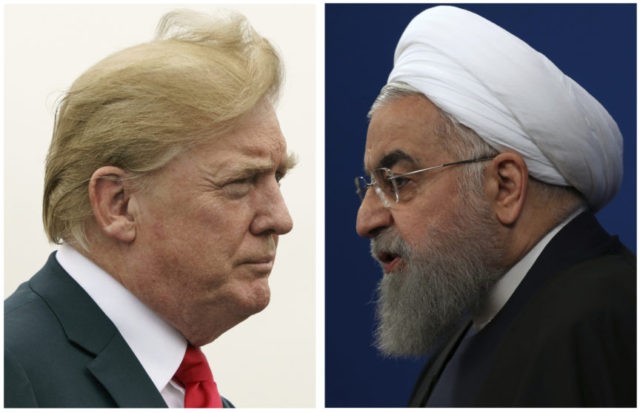Iran celebrated a victory at the International Court of Justice (ICJ) on Wednesday as the court ordered the United States to weaken sanctions because they supposedly violate the 1955 Treaty of Amity between the U.S. and Iran and would cause undue hardship for Iranian civilians.
Reuters noted the ruling probably will not have much impact on U.S. policy, but Iran – which has ignored ICJ rulings it disagreed with in the past – will milk it for public relations and diplomatic talking points:
The court order issued on Wednesday is temporary pending a resolution of Iran’s full lawsuit against Washington by the ICJ, something that could take years.
Iran’s Foreign Ministry said in a statement “the decision proved once again that the Islamic Republic is right and the U.S. sanctions against people and citizens of our country are illegal and cruel.
“The United States must comply with its international commitments and lift obstacles to Iranian trade,” it added.
The ICJ is the United Nations’ highest court for resolving disputes between nations. Its rulings are binding, but it has no power to enforce them, and both the United States and Iran have ignored them in the past.
“The decision proved once again that the Islamic Republic is right and the U.S. sanctions against people and citizens of our country are illegal and cruel,” the Iranian Foreign Ministry said in a statement.
Iranian Foreign Minister Mohammed Javad Zarif hailed the ruling as “another failure for the sanctions-addicted U.S. government and a victory for the rule of law.”
“It is imperative for the international community to collectively counter malign U.S. multilateralism,” he said.
Zarif added he was confident the European Union, China, and Russia would be able to help Iran evade the worst effects of the tougher round of U.S. sanctions scheduled to take effect in November. He anticipated U.S. President Donald Trump would soon meet with Iranian President Hassan Rouhani to negotiate a return to the nuclear deal authored by the Obama administration.
“Having negotiated that deal and having been involved in this process for a very long time, I can assure President Trump that the U.S. will not get a better deal,” Zarif said.
The ICJ ruled that U.S. sanctions must not interfere with “exportation to the territory of Iran of goods required for humanitarian needs such as medicines, medical devices and foodstuffs, and agricultural commodities as well as goods and services required for the safety of civil aviation.”
The Trump administration argued U.S. sanctions specifically exempt food and medical supplies, Iran abused the court for political purposes by filing its complaint, the 1955 treaty referenced by the ICJ specifically prohibited this type of court ruling, and the treaty was signed with an Iranian government that ceased to exist in the 1979 Islamist revolution.
The foreign policy establishment has long been obsessed with the idea of using sanctions as a relatively low-cost, non-confrontational means of convincing rogue regimes to change their behavior, but the technique has rarely been used as seriously as the Trump administration has employed it against North Korea and Iran. The inherent flaw in the sanctions argument is that tyrants are generally willing to let their people suffer and believe they can control political unrest with violence. It takes a great deal of pressure for sanctions to squeeze a regime so hard that the ruling elite truly feels the pinch.
The ICJ order against the Trump administration illustrates this flaw by conceding U.S. sanctions do make allowances for humanitarian assistance, but those allowances are “not adequate” because it has “become difficult, if not impossible, for Iran, Iranian nationals, and companies to engage in international financial transactions.”

COMMENTS
Please let us know if you're having issues with commenting.